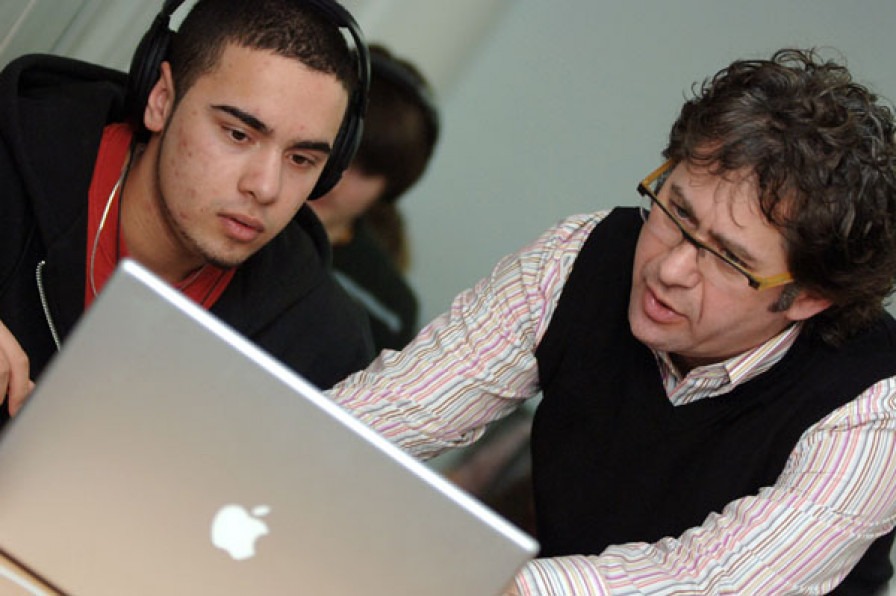Progression in Practice

Most people agree on the importance of young people’s musical progression, but what does it mean in practical terms. As a practitioner, how do I know I’m doing it right?
Most people agree on the importance of young people’s musical progression, but what does it mean in practical terms. As a practitioner, how do I know I’m doing it right?
The Arts Council and DFE value the it enough to make it a core role of the Music Education Hubs and Youth Music have two modules dedicated to it but how do we raise the quality of the progression support we give and what are the practical barriers?
I think that one of the barriers with children and young people’s musical progression is that we all think we understand it and that we have it covered. Of all the conversations I have had recently on this topic, not one person has told me that they either don’t understand it or are not very good at applying it.Most of us are so busy with all of the other stuff that goes with helping young people with their music that we don't stop to question how we advise on progression.
I was thinking about how to improve how we support young people’s musical progression and I thought that I should start by looking at my own practice and try to find any gaps or areas for development.
The work of the Youth Music Funded Musical Progression Roundtable has produced some great resources on agencies and ingredients that are necessary for progression along with a great resource from Ben Sandbrook on how a more informed understanding of our progression environments gives young people more choices of progression routes.From this I formulated this series of critical questions to challenge and review the way I support young people’s musical progression.
When I applied these questions to my own practice and when talking to others, I noticed that there were two kinds of answers. The first was where I could think of so many different examples and knew instinctively that this was deeply engrained in my practice. The second was that I had to think hard of more than a couple of examples.
Take a look at these statements and ask yourself , do I consider all of these things when I advise young people? Like me, you are probably aware of their importance but how well do you do them. I suspect that the answers to these questions are the key to improving young people’s musical progression. When answering these questions don't be tempted to satisfy yourself with finding an example of a success to prove that you do this, instead be a little more critical.
When discussing musical progression with a young person:
- Do I listen to the whole explanation before responding?
- Do i give a straight answer or do i ask more questions to better understand the situation?
- Do I advise in the best interests of the young person or child?
- Do I refer to other agencies where suitable?
- What websites, forums, newsletters and groups do i subscribe to that inform me of all progression opportunities?
- Do i keep young people informed of all of the music experiences and opportunities available to them?
- Am I aware of the boundaries for referring to a safeguarding officer?
- Do i keep other support adults informed of the exchange?
- Do they go away with something outlining next steps and an a date to review progress?
- When young people regularly meet local or regional barriers, do I feed this back to organisations that work to improve this?
- Can I prove that i gave that advice?
I realise that it is impossible to remember all of these things when talking to a young person, especially as these conversations happen in the middle of an activity or in a corridor. So, from these questions, I have designed a progression tutorial form. Please feel free to adapt it to your own situation. I am aware that many organisations will already have tutorial forms and are already working in this way which i would be very interested to hear about.
Then I changed the above questions into statements, and the result was a Code of Practice that could be used to state to the outside world that when supporting children and young people’s musical progression, we:
- Listen to the whole explanation before responding
- Ask key questions to better understand the situation
- Advise in the best interests if the young person or child
- Inform young people where they can get AIG and support on musical progression
- Commit to keeping myself informed of all music education activity. (regionally, locally and nationally)
- Inform young people of all suitable music experiences and opportunities available to them
- Disclose any safeguarding issues to a relevant safeguarding professional
- Keep other support adults informed of the exchange
- Give YP an action plan clearly identifying next steps, key actions and timelines required for progression and agree a review date
- Report progression barriers back to Hubs and Bridges
- Keep a record of the progression meeting/tutorial
Questions
Do you think that there is merit in pursuing this idea as a benchmark of good practice such as the Music Education Code of Practice?
Is there a need for a Music Progression Code of Practice that individuals and organisations could sign up to and Young people would come to recognise as a person or place that they would receive good advice on their musical progression?
